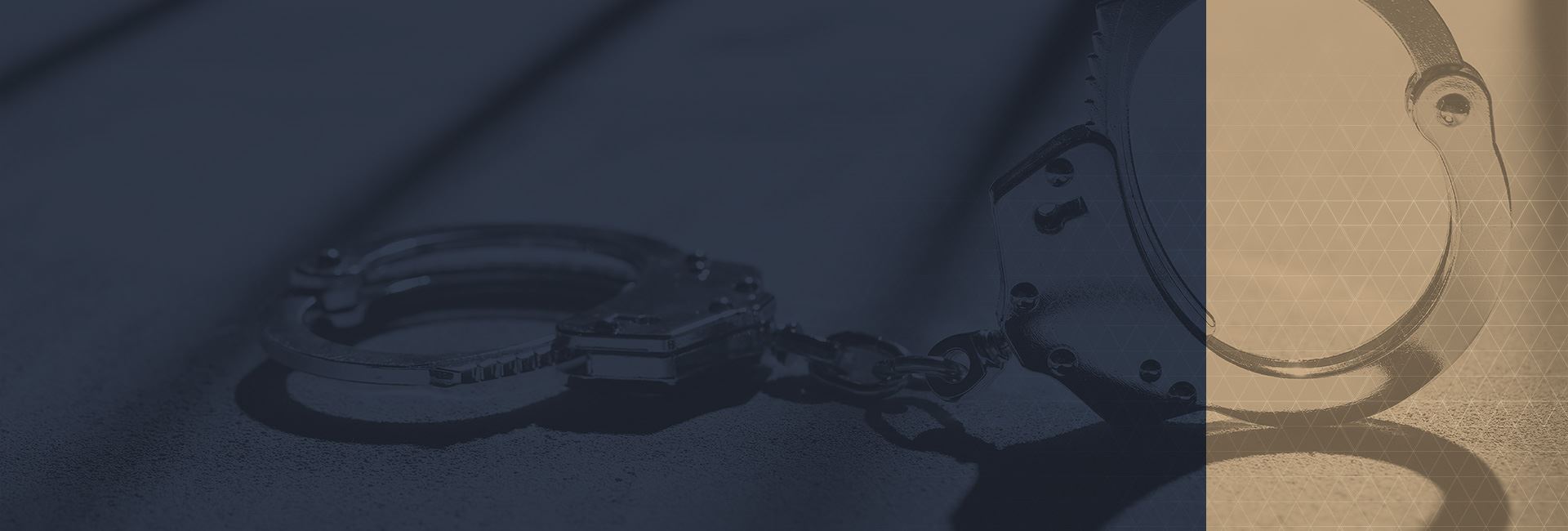We Fight For The Best Result
Every Client. Every Time.
Our team is always willing to take every step needed to obtain the best results for our clients.
Case Stories Contact Us
Baton Rouge Weapons Crimes Lawyers
Guns are popular in Louisiana, for everything from self-defense to hunting to going out to a shooting range. Unfortunately, guns can also become involved in crimes. A defendant in these cases faces the real possibility of everything from jail time to the loss of constitutional rights. Our Baton Rouge weapons crime lawyers will fight for their freedom and reputation, exploring every possible avenue of defense.
Beall & Thies has experienced attorneys, familiar with the different types of weapons crimes and how to investigate and construct a vigorous defense strategy. Call today at 225-383-3499 or contact us online to set up a consultation.
Louisiana is generally considered a "shall-issue" state for concealed carry permits. This means that if an applicant meets the statutory requirements, the state is required to issue the permit.
The state issues concealed carry permits for residents and non-residents. Applicants must be at least 21 years old (or 18 for military personnel), undergo a background check, and meet other eligibility criteria. Open carry of firearms is generally allowed without a permit in most public places.
Background checks are required for all firearm purchases from licensed dealers, including those at gun shows. Private sales between individuals may not require a background check, but federal law mandates that individuals cannot sell firearms to prohibited persons.
Louisiana has a "Castle Doctrine," which allows residents to use deadly force in self-defense within their home or vehicle. The state also has a "Stand Your Ground" law, meaning individuals have no duty to retreat before using force in self-defense.
State law prohibits certain individuals from owning or possessing firearms, including convicted felons, individuals with certain mental health issues, and those subject to restraining orders. There are also restrictions on carrying firearms in certain locations, such as schools, government buildings, and places that serve alcohol.
A violation of these rules can result in the charge of “carrying in an unauthorized place”, and conviction can result in up to six months and jail and a fine of $500.
If a convicted felon possesses a gun in Louisiana, a conviction carries a prison sentence between five and 20 years and a maximum fine of $5,000. Additionally, Selling, lending, delivering, donating, giving, or otherwise transferring a firearm to any person who is prohibited from possessing a firearm is punishable by imprisonment for up to one year and a maximum fine of $2,500.
It’s also possible that an otherwise legal gun could be handled in an improper way. This would be “negligent carry” and it means that a gun is handled in such a way that a reasonable person would expect it to go off and harm someone else.
While weapons crimes are typically associated with guns, it bears noting that negligence can apply to any other sort of weapon. State law defines criminal negligence in this regard as the handling of anything—be it an object, liquid, or other substance—in a way that a reasonable person would anticipate death or bodily harm to someone else.
A gun that is actually fired inappropriately can be considered reckless discharge. This is a felony in Louisiana. An example might be shooting off a gun at a party in a residential area or shooting while intoxicated. Conviction on reckless discharge means at least 5 years in jail and perhaps as many as 15 years.
Carrying a gun while possessing illegal drugs is a crime, even if nothing illegal was done with the gun. The same goes for having a gun while committing another illegal act (e.g., a theft). What this means is that a District Attorney can bring multiple charges—the possession of illegal drugs or whatever illegal act was being performed have minimum sentences all their own. The D.A. might tack the weapons charge on top of it. In this context, the defendant will be faced with an additional 5-10 years of jail time beyond what’s already on the table with the original charges.
A conviction on the charge of aggravated assault with a firearm means as many as 10 years in jail and a fine as high as $10,000. Keep in mind that assault does not require that the gun have been fired. Assault simply means that the other party involved perceived a threat that the gun would be used, and that this perception was reasonable based on the circumstances. A Baton Rouge weapons crimes attorney that understands the law and how to apply it in specific cases might be the difference between a misunderstanding turning into a felony conviction or securing an acquittal.
Call Beall & Thies today at 225-383-3499 or fill out our online form and let us handle the fight for your freedom, your constitutional rights, and your reputation.
At Beall & Thies, we are committed to helping you obtain the most favorable outcome possible, whether that is getting your entire case dismissed or your charges reduced to avoid serious jail or prison time. Our team can investigate your case, gather evidence, build a strong defense, and fight for you inside and outside the courtroom.
Contact us today at 225-383-3499 to let us help you get your life back on track.
Beall & Thies has experienced attorneys, familiar with the different types of weapons crimes and how to investigate and construct a vigorous defense strategy. Call today at 225-383-3499 or contact us online to set up a consultation.
Louisiana Gun Laws
In Louisiana, the term "firearm" generally includes various types of weapons. The definition may cover:- Handguns and Pistols: These are short-barreled firearms that are designed to be fired from one hand.
- Long Guns: Long guns include rifles and shotguns with longer barrels, typically designed to be fired from the shoulder.
- Antique Firearms: Some laws may exclude certain antique firearms from regulations. The definition of an antique firearm can vary, but it often includes firearms manufactured before a certain date or those that are considered collector's items.
- Machine Guns: Louisiana law, like federal law, regulates the possession and use of machine guns, which are firearms capable of firing multiple rounds with a single trigger pull.
- Short-Barreled Shotguns and Rifles: Louisiana, like many states, may have specific regulations regarding the possession and use of short-barreled shotguns and rifles.
- Other Weapons: The definition may also include other weapons that meet certain criteria, such as devices that expel a projectile through the action of an explosive, devices that are designed to be readily converted into firearms, and certain types of accessories.
Louisiana is generally considered a "shall-issue" state for concealed carry permits. This means that if an applicant meets the statutory requirements, the state is required to issue the permit.
The state issues concealed carry permits for residents and non-residents. Applicants must be at least 21 years old (or 18 for military personnel), undergo a background check, and meet other eligibility criteria. Open carry of firearms is generally allowed without a permit in most public places.
Background checks are required for all firearm purchases from licensed dealers, including those at gun shows. Private sales between individuals may not require a background check, but federal law mandates that individuals cannot sell firearms to prohibited persons.
Louisiana has a "Castle Doctrine," which allows residents to use deadly force in self-defense within their home or vehicle. The state also has a "Stand Your Ground" law, meaning individuals have no duty to retreat before using force in self-defense.
State law prohibits certain individuals from owning or possessing firearms, including convicted felons, individuals with certain mental health issues, and those subject to restraining orders. There are also restrictions on carrying firearms in certain locations, such as schools, government buildings, and places that serve alcohol.
Common Types Of Gun Crimes In Louisiana
The state of Louisiana gives permits for concealed carry, but even with the permit, there are limits on where a gun can be brought. For example, one may not bring their gun to a parade. A person cannot be armed at a public event, including a legal protest. If a gun is brought into a church or private resident, the gun owner must have gained the owner’s prior consent.A violation of these rules can result in the charge of “carrying in an unauthorized place”, and conviction can result in up to six months and jail and a fine of $500.
If a convicted felon possesses a gun in Louisiana, a conviction carries a prison sentence between five and 20 years and a maximum fine of $5,000. Additionally, Selling, lending, delivering, donating, giving, or otherwise transferring a firearm to any person who is prohibited from possessing a firearm is punishable by imprisonment for up to one year and a maximum fine of $2,500.
It’s also possible that an otherwise legal gun could be handled in an improper way. This would be “negligent carry” and it means that a gun is handled in such a way that a reasonable person would expect it to go off and harm someone else.
While weapons crimes are typically associated with guns, it bears noting that negligence can apply to any other sort of weapon. State law defines criminal negligence in this regard as the handling of anything—be it an object, liquid, or other substance—in a way that a reasonable person would anticipate death or bodily harm to someone else.
A gun that is actually fired inappropriately can be considered reckless discharge. This is a felony in Louisiana. An example might be shooting off a gun at a party in a residential area or shooting while intoxicated. Conviction on reckless discharge means at least 5 years in jail and perhaps as many as 15 years.
Carrying a gun while possessing illegal drugs is a crime, even if nothing illegal was done with the gun. The same goes for having a gun while committing another illegal act (e.g., a theft). What this means is that a District Attorney can bring multiple charges—the possession of illegal drugs or whatever illegal act was being performed have minimum sentences all their own. The D.A. might tack the weapons charge on top of it. In this context, the defendant will be faced with an additional 5-10 years of jail time beyond what’s already on the table with the original charges.
A conviction on the charge of aggravated assault with a firearm means as many as 10 years in jail and a fine as high as $10,000. Keep in mind that assault does not require that the gun have been fired. Assault simply means that the other party involved perceived a threat that the gun would be used, and that this perception was reasonable based on the circumstances. A Baton Rouge weapons crimes attorney that understands the law and how to apply it in specific cases might be the difference between a misunderstanding turning into a felony conviction or securing an acquittal.
Call Beall & Thies today at 225-383-3499 or fill out our online form and let us handle the fight for your freedom, your constitutional rights, and your reputation.
Defenses Against Weapons Charges
Legal defenses to firearm charges can vary based on the specific circumstances of the case and the laws of the jurisdiction involved. Here are some common legal defenses that individuals accused of firearm-related offenses may consider:- Unlawful Search and Seizure: The Fourth Amendment of the U.S. Constitution protects individuals from unreasonable searches and seizures. If evidence, including firearms, was obtained through an unlawful search, it may be possible to challenge its admissibility in court.
- Lack of Possession: In cases where possession is a key element, a defense may involve challenging whether the accused had actual or constructive possession of the firearm. For example, if the firearm was found in a shared space, proving who had control over it may be crucial.
- Lack of Knowledge: If the accused was unaware of the presence of a firearm or didn't know it was illegal, this lack of knowledge might be used as a defense. However, this defense can be challenging to establish and may depend on the specific circumstances.
- Self-Defense: In cases involving the use of a firearm in self-defense, the accused may argue that they used the weapon to protect themselves or others from imminent harm. The legal standards for self-defense can vary by jurisdiction.
- Mistaken Identity: If the case involves eyewitness identification, a defense may assert that the identification was mistaken, unreliable, or influenced by external factors.
- Illegal Search Warrant: If law enforcement obtained a search warrant improperly or without sufficient evidence, it may be possible to challenge the legality of the search and seek to exclude any evidence obtained as a result.
- Violation of Miranda Rights: If the accused was not properly informed of their Miranda rights (right to remain silent, right to an attorney) during arrest and questioning, statements made during that time may be inadmissible in court.
- Procedural Errors: Defense attorneys may also examine the procedures followed during the arrest, booking, and questioning to identify any errors that could impact the admissibility of evidence.
- Unreliable Witnesses: If the case relies heavily on witness testimony, the defense may challenge the credibility of witnesses, questioning their reliability or potential biases.
At Beall & Thies, we are committed to helping you obtain the most favorable outcome possible, whether that is getting your entire case dismissed or your charges reduced to avoid serious jail or prison time. Our team can investigate your case, gather evidence, build a strong defense, and fight for you inside and outside the courtroom.
Contact us today at 225-383-3499 to let us help you get your life back on track.
Experienced Lawyers You Can Trust
It’s our job as Baton Rouge weapons crimes lawyers to thoroughly investigate all the details of your case and then leverage those details and our deep experience with the law to try and get a good outcome, whether that be acquittal or a plea agreement.
Beall & Thies has over 20 years of experience as a firm and over 100 years of experience as individual attorneys. Call us today at 225-383-3499 or contact us online to set up a consultation.









